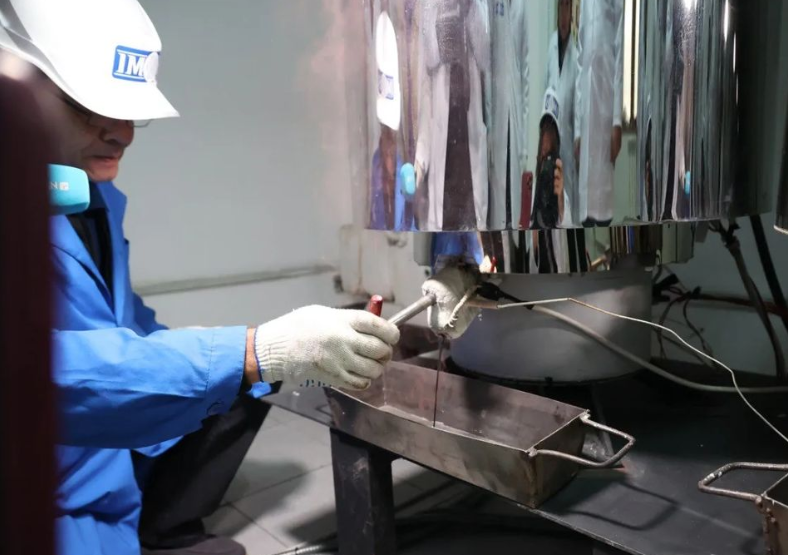ASTANA – Kazakhstan has made a groundbreaking advancement by elevating its selenium enrichment to 99.5% within a year, Minister of Science and Higher Education, Sayasat Nurbek, announced on his Instagram page on Jan. 13.

Photo credit: Sayasat Nurbek’s Instagram page.
On Aug. 28, 2023, at the production facilities of Kazakhmys Progress in Balkhash, Kazakhstan’s first-ever workshop was opened for the production of refined selenium, containing a minimum of 99.5% of the primary component.
Kazakhstan is the world’s largest producer of crude selenium, a rare and sought-after material in global metal markets that is difficult to mine and even more challenging to purify.
Developed by scientists at the Institute of Metallurgy and Ore Beneficiation at Satbayev University under the guidance of Professor Bagdaulet Kenzhaliyev, the technology represents a know-how that enables the cost-effective and reagent-free extraction of refined selenium with a purity exceeding 99.5% in a single stage.
The production cost of pure selenium stands at $4 per kilogram. Refined selenium with a content of more than 99.5% is estimated at $110-150 per kilogram. In contrast, crude selenium, containing no more than 80% of the primary component, is available at a price range of $10 to $12 per kilogram.
With a planned annual processing capacity of 75 tons of crude selenium sourced from the Balkhash copper smelting plant of Kazakhmys Smelting, the production facility aims to yield over 60 tons of refined selenium per year.
The success of the technology, which was implemented with a commercialization grant of 280 million tenge ($618,624) from the Science Fund, has not only placed Kazakhstan on the global map for selenium production but has also contributed to a fivefold increase in the salaries of scientists at Satbayev University.
President Kassym-Jomart Tokayev repeatedly noted that science in the country had long been overlooked, which prevented such achievements for a long time, Nurbek said.
“The new and modern production marks a new stage in the development of domestic science, as a result of the integration of science and production,” he added.
Nurbek also stated that the ministry’s reforms aimed at providing universities with managerial freedom made it possible to build a reliable bridge between science and the real sector of the economy.

